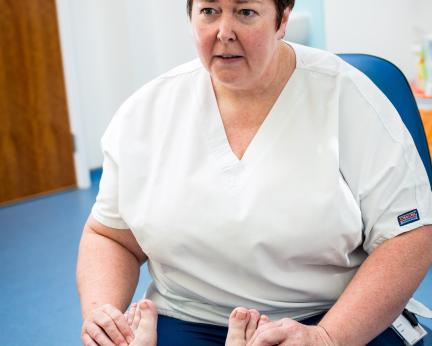"It’s brilliant that within the podiatry profession there’s a strong culture of supporting research and evidence-based practice."
Kerry had never worked directly in health before, but had an interest in human biology and was attracted to podiatry because of its breadth and how flexible it is.

Kerry Brown
Podiatrist/research podiatrist
- Employer or university
- Solent NHS Trust/University of Southampton
- Salary range
- £20k-£30k




